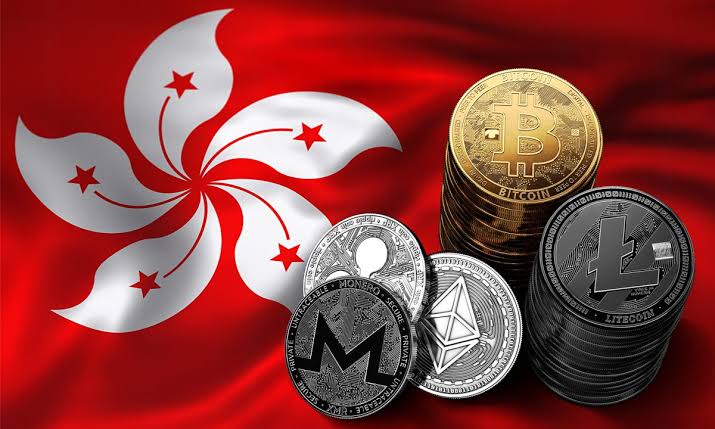The Securities and Futures Commission (SFC) of Hong Kong has announced plans to overhaul its Hong Kong crypto trading framework, allowing licensed exchanges in the city to connect their local entities with international order books.
The move aims to remove existing barriers that restrict trades within Hong Kong, potentially boosting liquidity and market competitiveness.
According to SFC Chief Executive Officer Julia Leung, the new rule will be formally detailed in a regulatory circular expected later today. The update will bring the digital asset market closer in line with the regulatory model governing traditional financial products such as equities and derivatives.
“You can say we are on the tougher side,” Leung said during an investor forum. “Once we are sure that we are able to protect investors, we do relax as we did with global liquidity.”
The policy revision signals a renewed commitment to making Hong Kong a leading digital asset hub in Asia, even as trading activity still trails behind major markets like the United States.
Hong Kong pushes digital asset integration amid global competition
Since 2022, Hong Kong has implemented an extensive licensing regime for crypto exchanges, approved Bitcoin and Ether-linked exchange-traded products, and established regulatory frameworks for digital asset funds.
The Hong Kong crypto trading framework expansion represents the next step in that evolution, potentially positioning the city as a gateway between Western liquidity and Asian markets.
Despite these measures, Hong Kong’s trading volumes remain well below those in the U.S., where policymakers have taken a more permissive approach under President Donald Trump’s administration. Analysts suggest that the city’s cautious rollout prioritizing investor protection has delayed widespread market participation.
The SFC is also finalizing new frameworks for licensing crypto dealers and custodians, while the Hong Kong Monetary Authority (HKMA) is preparing to issue the first stablecoin licenses by 2026. These coordinated initiatives aim to fortify the regulatory foundation of Hong Kong’s financial sector while broadening institutional access to global crypto markets.
As explained by the Hong Kong Monetary Authority, such licenses are critical for maintaining trust and transparency in cross-border digital asset transactions.
Broader access could open doors for Binance and Coinbase
Under the evolving Hong Kong crypto trading framework, local regulators may eventually allow not only exchanges but also licensed crypto brokers to access international liquidity pools.
This adjustment could significantly lower entry barriers for major firms like Binance and Coinbase, which may opt for brokerage licenses instead of pursuing the more complex full exchange applications.
Currently, 11 crypto exchanges hold full SFC licenses, while 49 brokers operate through omnibus account arrangements. The SFC also revealed plans to ease listing rules for new tokens and stablecoins, including those approved by the HKMA, by removing the 12-month operational track record requirement for professional investors.
These changes are expected to draw renewed institutional attention to the region, enhancing liquidity and positioning the Hong Kong crypto trading framework as a model for regional adaptation.
New “LEAP” framework places tokenization at the center of strategy
In tandem with the exchange reforms, Hong Kong has launched its second major digital asset policy statement, introducing the “LEAP” framework which is an acronym for Legal clarity, Ecosystem growth, Adoption, and Professional development.
This framework anchors the government’s broader plan to establish a stablecoin licensing regime and integrate real-world asset (RWA) tokenization into the financial system.
Under the Hong Kong crypto trading framework, tokenized government bonds and exchange-traded funds (ETFs) will soon be tradable on licensed digital asset platforms.
The government also aims to extend tokenization to commodities and energy sectors, highlighting use cases such as gold-backed tokens and renewable energy credits.
“The combination of regulated tokenization and stablecoin infrastructure could transform Hong Kong’s financial markets,” said David Chan, senior analyst at the Asia Financial Innovation Network (AFIN). “It’s a bridge between traditional capital and digital finance.”
Hong Kong eyes fintech dominance through policy evolution
Officials see the evolving Hong Kong crypto trading framework as key to reviving investor confidence amid global competition. By encouraging tokenization, streamlining exchange operations, and introducing a stablecoin regime, the city is positioning itself as a critical node in the global digital finance ecosystem.
While challenges remain especially in balancing compliance with innovation as industry experts agree that Hong Kong’s reforms signal a long-term strategy to attract institutional capital and restore its status as Asia’s financial powerhouse.
“The region’s focus on building transparent, scalable, and cross-border crypto markets shows maturity,” said Leung. “Hong Kong isn’t just reopening its doors to crypto as it’s redesigning the entire entryway.”











